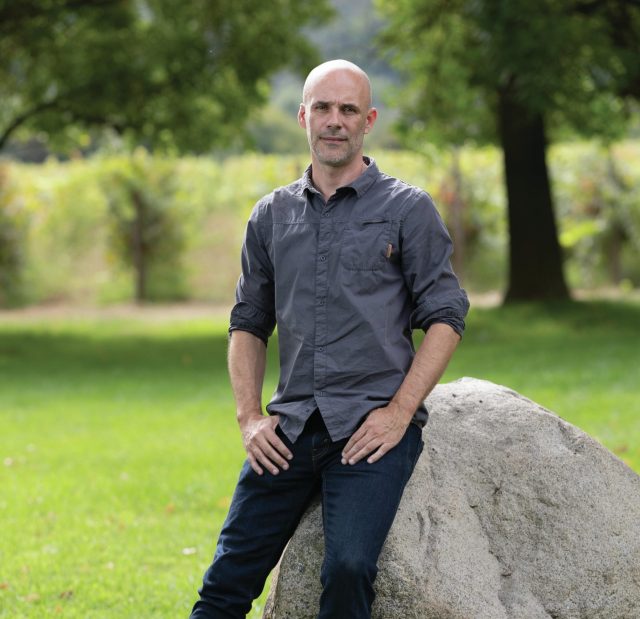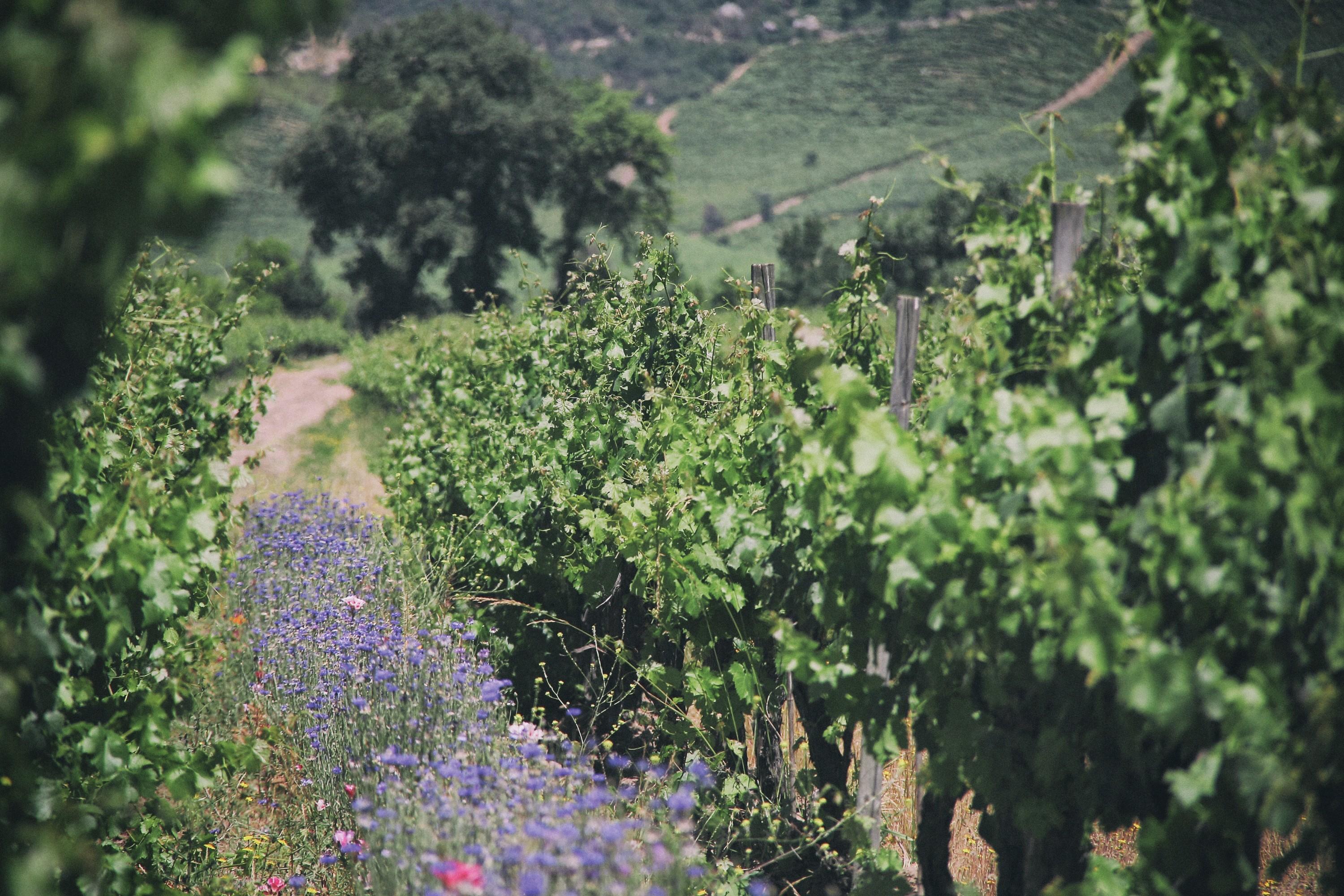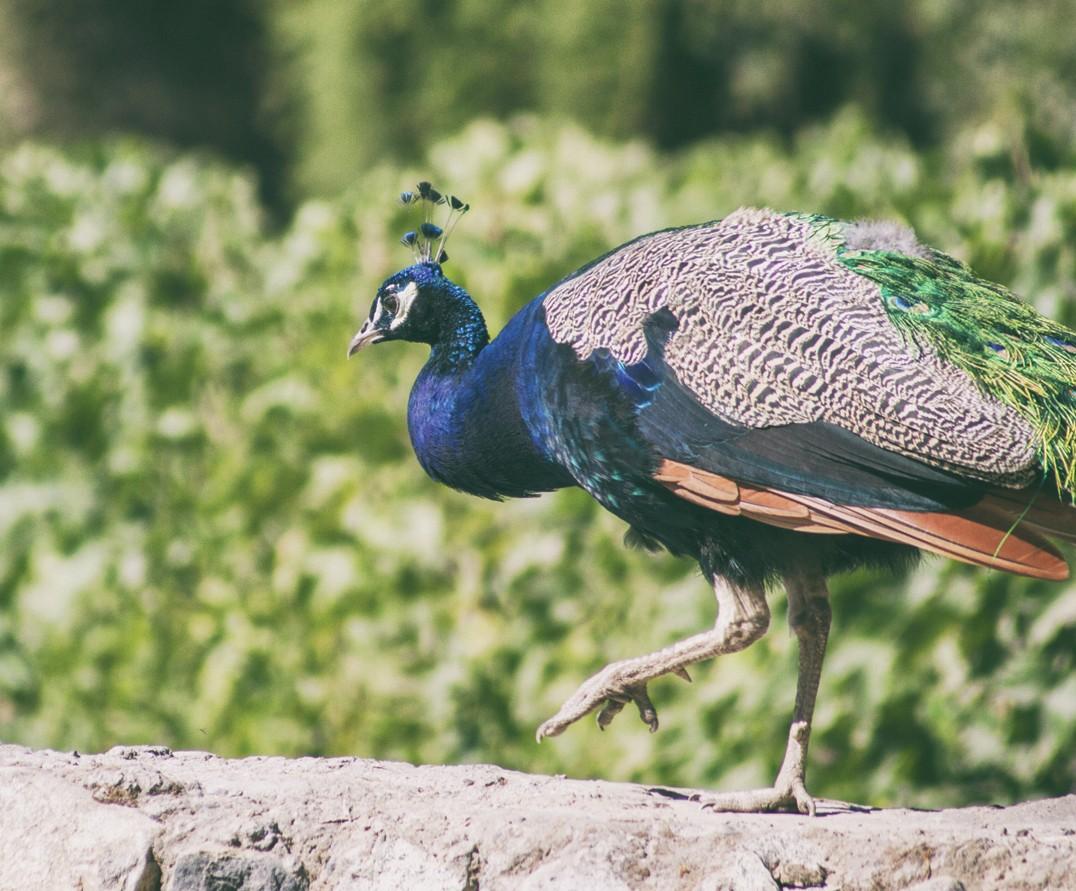The Big Interview: Sebastián Tramón
Emiliana’s head of sustainability, Sebastián Tramón, is on a mission to push boundaries within organic and regenerative practices.

The wine trade is full of big personalities shooting for glory, but it’s often the quiet ones beavering away in the background that are most deserving of being celebrated. One such humble hero is Sebastián Tramón, or Captain Planet as he’s affectionately known by his team.
As head of sustainability at Emiliana Organic Vineyards in Chile – the world’s largest organic wine producer – for the last 10 years Tramón has spearheaded the estate’s numerous environmental projects and investigative initiatives, while looking after its CSR and Fairtrade activities. Not only this, he has also kept on top of Emiliana’s organic, biodynamic and regenerative certifications.
He’s a man with fingers in many pies, but seems to take it all in his stride, practising what he preaches by living and breathing Emiliana’s holistic ethos and hands-off approach to winemaking. Tramón’s dedication to the cause saw him scoop the Green Personality of the Year gong at db’s 2024 Green Awards, which he was both surprised and delighted to win.
“I wasn’t expecting it and am really proud of it. Winning the award is a big responsibility and very motivational. It makes you want to keep pushing forward and striving to be better,” he says.
Founded in 1986, Emiliana made the move to organics in 1998, and its certified organic vineyard holdings now stretch to 1,150 hectares across Chile’s strip, from Casablanca, Colchagua and Cachapoal, to more recent acquisitions in Maule and Bío-Bío down south.
Tramón believes the winery’s success stems from having the confidence of its convictions from the get-go when it came to organics.
“To be organic, first and foremost you have to be a good farmer,” he says. “When Emiliana converted to organics in the ’90s, producers were trialling organics on their worst plots of land, but our founders went with their best plot first. Their success has helped to grow the organic wine movement in Chile, and organics is increasingly being adopted by conventional winemakers, which is great. People are realising that toxic pest control chemicals aren’t the answer and are going back to natural products.”
Having been the first estate in Chile to pursue organic and later biodynamic certification, Emiliana’s range spans 11 different labels, including Coyam – Chile’s first premium organic wine – and Gê, the country’s first certified biodynamic release, made by Noelia Orts; and the Adobe and Novas ranges that are presided over by Emilio Contreras. The portfolio also includes no-added-sulphur brand Salvaje (meaning ‘wild’), Chile’s first certified organic traditional method sparkler Almaluna, and the Signos de Origen line, which includes a Pinot Noir and a Chardonnay/Roussanne blend aiming to showcase the top terroirs in the Casablanca Valley.
For Tramón, practising organic and biodynamic viticulture dials up the deliciousness in the wines. “Our grapes have a higher amount of phenolic compounds and antioxidants, and the resulting wines are healthier and a faithful representation of where they come from. They let nature do the talking,” he says.
“Biodynamics looks at things holistically, treating each individual vineyard as its own ecosystem. It made a lot of sense to us to work in this way. We don’t communicate about it a lot, but it’s a great framework.”
While it would be easy for Tramón to rest on his laurels, having already achieved so much within the organic wine space, he’s keen to keep pushing forward and breaking new ground, aware that the eyes of the wine world are on Emiliana when it comes to all things green.
“Being the world’s biggest organic winery is an honour, but it means that we can’t make any mistakes,” he says. “We want to push the boundaries of what’s possible within the organic wine movement and advocate for more sustainable production. We’ve been working with rural schools, teaching kids about organic agriculture, and have been lobbying the Chilean Government for more support for small organic producers. There’s always room for improvement and more work to be done.”
Among Tramón’s most recent achievements is steering Emiliana towards Regenerative Organic Certification (ROC), which the estate attained in 2023 in another first for Chilean wine, joining the likes of Patagonia in the esteemed club. To do so, Emiliana had to meet stringent soil health, animal welfare and social equity standards, with only certified organic and Fairtrade wineries even considered for the certification.
It’s a milestone Tramón is incredibly proud of, though he’s wary of the term ‘regenerative’ being used as a buzzword by wineries that don’t have the credentials to back it up.
“It was a natural step for us to move towards regenerative viticulture. It’s all about creating a more holistic way of working, and it goes deeper than organics and biodynamics into measuring the impact of what you’re doing in terms of cover crops and carbon capture on your vineyards,” he says.

“Regenerative agriculture is the new paradigm for sustainability, and with it comes a big risk of greenwashing, as there is currently no framework or standards in place for what it means to be regenerative. For us, it comes down to third-party certification, so that people know we’re not just saying that we’re doing it; we’re actually doing it.”
Tramón found the focus on the human element of the ROC certification particularly pertinent, and feels this often gets ignored when it comes to sustainability within the wine trade.
“There’s a big focus on worker wellbeing, which is an important piece of the puzzle and often overlooked,” he says. “I was in a meeting with monopoly representatives from Norway, Finland and Sweden recently and they were talking about modern slavery in the wine industry with regard to vineyard workers not getting paid properly in South Africa, Italy and even France. You can’t take care of your land, plants and animals, and not your people. It doesn’t make sense.”
Emiliana goes beyond paying its employees a fair wage each month, offering on-site medical visits for vineyard workers and technical training scholarships for their children. While he’s big on certification as a way of proving your green credentials, Tramón admits that there are currently far too many organic certifications out there, and that streamlining them into one global standard would by a savvy move for all involved.
Toxic pesticides
While interest in – and demand for – organic products is on the rise, Tramón believes there is still a lot of work to be done if organic wines want to make a bigger splash.
“There has been a shift in attitude towards organic wine in recent years, and they usually get better scores,” he says. “Global wine consumption is decreasing, but organic wine sales are in growth, so we’re on the right track. One of the biggest challenges is the need to communicate about what it means to be organic and why the wines are different. Retailers and importers have an important role to play here in helping to get that message across.”
Going forward, he would like to see the worst offenders on the toxic pesticides front being held to account, and more government incentives to help winemakers make the move to organics.
“When you’re a conventional winery that’s using chemicals that damage people and the environment, it’s not a level playing field. They should be more heavily scrutinised about what they’re doing, how they’re doing it and what products they’re using,” he says. “That’s not happening right now, so they aren’t motivated to make changes. There aren’t enough government incentives around the world to increase organic production, but the market is asking for it.”
Sustainability may be taking up more column inches and getting more airtime as the need to take action ramps up, but progress hasn’t been linear, as Tramón points out.
“Pesticide use in South America, Africa and Asia has been increasing in recent years, which is a problem,” he says. “We have to take action soon in order to turn things around, but the world is facing food scarcity problems, and we need pesticides to grow the crops to feed the people, so it’s a difficult situation.”
Paradigm shift
One paradigm shift he is pleased to see is the increased importance that’s being placed on soil health both in the wine industry and in the wider agricultural sector. “It’s important for humans to have a healthy gut microbiome – they say the gut is the second brain – and it’s the same for soils,” he says. “The more diversity of micro-organisms you have in your soils, the healthier, more resilient and nutrient-rich they will be.”
Keen to prove that organics is possible even in more extreme climatic conditions, Emiliana recently planted a 270-hectare vineyard from scratch in Bío-Bío in southern Chile. It’s a project that has forced the team to continuously adapt its approach to make things work.
“Organics can be done everywhere in the wine world, but some places are more difficult than others,” Tramón admits. “It’s colder and wetter in Bío-Bío, with different soils and different diseases, so getting used to the conditions has been a challenge. We’ve learnt to do everything within a shorter time-frame, as it’s too cold and wet to do things like fertilising in the winter.”
There seems to be something quite Nietzschean about Tramón, and you get the sense that he quite enjoys the struggle, and the myriad challenges that come with being organic, as it makes the victories all the sweeter.
“Working this way isn’t easy, and there is no silver-bullet solution,” he says. “But we have proved that it’s possible to be organic at scale and produce competitive-sized yields.”
It all comes down to listening to, and working in harmony with, the environment. “Nature is never static. It’s not a factory. You can’t control it or its output. You have to work closely with it and constantly observe it in order to find new solutions.” Tramón’s words bring to mind the famous Albert Einstein quote: “Look deep into nature, and then you will understand everything better.”

Green light: Emiliana’s sustainability milestones
• Founded in 1986, Emiliana made the move into organics in 1998, releasing its first certified organic wine, Coyam 2001, in 2003. The winery is now certified organic across 100% of its 1,150 hectares of vineyards and only buys certified organic grapes.
• Emiliana was the first winery in Chile to be certified biodynamic, releasing biodynamic wine Gê 2003 in 2006. The estate works according to biodynamic principles, planting by the phases of the moon, nurturing cover crops between its vines, integrating cows, sheep and chickens in its vineyards, and using biodynamic preparations to increase the microbial life within its soils.
• In 2011, Emiliana attained Fairtrade certification. A year later, it was named Green Winery of the Year by the drinks business. In 2019, all of Emiliana’s wines became vegan-certified, and in 2021 it reached the 1m-case milestone of organic wines sold around the globe.
• In 2023, it was the first winery in Chile to obtain Regenerative Organic Certification (ROC) after meeting stringent standards of soil health, animal welfare and social equity. As part of its ROC commitment, Emiliana makes its own compost from 100% of its organic waste. In 2024, Emiliana attained B Corp certification, reinforcing its green commitments.
• The estate is working towards ensuring that 100% of its packaging is reusable, compostable or recyclable by 2025, and that 100% of the electricity used in its vineyards and wineries is from renewable sources by 2026.
• As part of its 2030 project, Emiliana is also aiming to reduce its carbon footprint by 46% by 2030.
• “It’s a huge challenge,” head of sustainability Sebastián Tramón admits. “We’ve reduced emissions by around 20% so far – the remaining 26% is the hard bit. We’re moving towards renewable electricity and using electric vehicles, including tractors. We’re also trying to better measure the carbon levels in our soils and reduce the amount of nitrogen in our vineyards, and are working with the companies in our supply chain to get them on board.”
• Emiliana has already achieved its goal of creating a protected biodiversity hotspot across 30% of its estate, while promoting species richness in its vineyards through regenerative farming practices.
Related news
The big interview: Tyrone Reid
